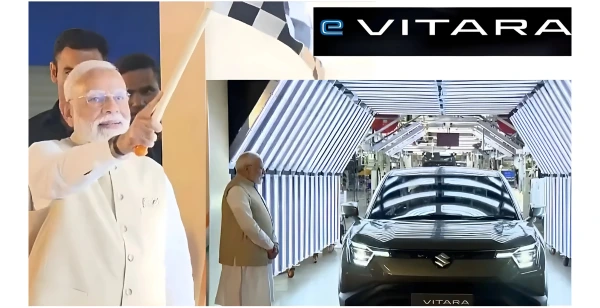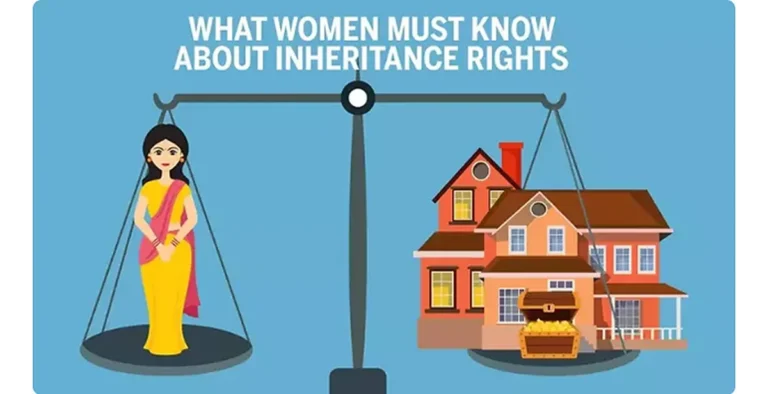
India Drives Into the Future: PM Modi Launches Maruti Suzuki e-Vitara EV From Gujarat to the World
Ahmedabad, August 26, 2025 – In a landmark step towards sustainable mobility and India’s self-reliance vision, Prime Minister Narendra Modi flagged off Maruti Suzuki’s first global battery electric vehicle (BEV), the e-Vitara, from the company’s state-of-the-art facility in Hansalpur, Gujarat. The event also marked the inauguration of a new hybrid battery electrode manufacturing plant, developed through a joint venture of Suzuki, Denso, and Toshiba, further strengthening India’s green mobility ecosystem.
A Milestone for India’s EV Journey
The launch of the e-Vitara is more than just a car unveiling — it is a statement of India’s growing capability to lead in clean mobility. Suzuki has designated the Hansalpur facility as the global manufacturing hub for this electric SUV, a move that cements India’s role in the international EV supply chain.
The e-Vitara is designed as Suzuki’s maiden global EV model and is set to be exported to over 100 countries, including advanced markets such as Japan, the UK, Germany, France, Indonesia, and South Africa. With exports beginning immediately, India is not just making EVs for its citizens but for the world, perfectly aligning with the “Make in India, Make for the World” vision.
A Plant That Powers Green Ambitions
Alongside the car’s launch, PM Modi inaugurated a new battery electrode plant in Gujarat. The facility, backed by Suzuki, Toshiba, and Denso, is expected to localize more than 80% of India’s EV battery value chain, reducing import dependence and creating new opportunities for innovation and employment.
The Prime Minister highlighted the eco-friendly nature of this development, calling it a “transformative step in India’s clean energy future.” By localizing electrode production, India strengthens its ability to produce sustainable batteries, paving the way for a greener tomorrow.
PM Modi’s Message to the World
Addressing the gathering, Prime Minister Modi expressed pride in India’s global leap in green mobility.
“Electric vehicles made in Bharat will be exported to over 100 countries. This is not only a milestone for Maruti Suzuki but also for India’s aspiration to become a global hub for clean mobility.”
He also pointed out the symbolic importance of exporting India-made cars to Japan, the home of Suzuki. This reflects the trust and confidence global companies place in Indian manufacturing.
Specifications That Redefine Value
The e-Vitara is built on Suzuki’s Heartect-e skateboard platform, offering both 49 kWh and 61 kWh LFP battery packs. Customers can choose between Front-Wheel Drive (FWD) and All-Wheel Drive (AWD) configurations, making the EV versatile for diverse global markets.
With production beginning in August 2025, Maruti Suzuki aims to produce nearly 67,000 units by March 2026, primarily for exports. The Hansalpur plant is expected to roll out 50,000 to 100,000 units annually, underscoring India’s rising production capacity.
A Global Commitment to Sustainability
The launch of the e-Vitara is not just about automobiles — it’s about India’s contribution to global sustainability goals. With countries around the world accelerating their shift to electric vehicles, India’s ability to manufacture and export high-quality EVs positions it as a responsible partner in the fight against climate change.
By combining affordable innovation with eco-friendly technology, the e-Vitara reinforces the belief that clean mobility should not be a luxury but a norm for all.
Big Investments, Bigger Vision
According to reports, Suzuki Motor plans to invest around ₹700 billion (USD 8 billion) in India over the next five to six years to expand EV production. This includes not just car manufacturing but also building a robust supply chain for EV batteries and components.
Such investments promise a ripple effect across the economy — from boosting local industries and creating jobs to making India a credible alternative to global manufacturing hubs.
Global Confidence, Local Strength
What makes this launch particularly significant is the message it sends worldwide: India is ready to lead. The fact that Suzuki Japan is importing EVs from its Indian facility highlights the maturity of India’s manufacturing ecosystem.
This confidence is not accidental. It is built on years of policy reforms, infrastructure development, and a clear push towards self-reliance (Atmanirbhar Bharat) while remaining connected to the global market.
A Humanized Vision for Green Mobility
The story of the e-Vitara is not just about technology or economics. It is about people. From engineers at Hansalpur who bring global designs to life, to Indian consumers who will soon drive eco-friendly cars, and to global buyers who will experience an EV “Made in Bharat” — this journey is about shared pride.
The Prime Minister emphasized that such milestones reflect the aspirations of young India, where sustainability, innovation, and inclusivity come together.
Conclusion: A Green Road Ahead
The launch of Maruti Suzuki’s e-Vitara EV and the inauguration of the hybrid battery electrode plant mark a historic moment in India’s pursuit of clean mobility. More than just a corporate achievement, it symbolizes India’s commitment to sustainability, innovation, and global leadership.
As the first fleet of e-Vitaras makes its way to international roads, it carries with it the spirit of a new India — eco-friendly, innovative, and ready to drive change worldwide.







